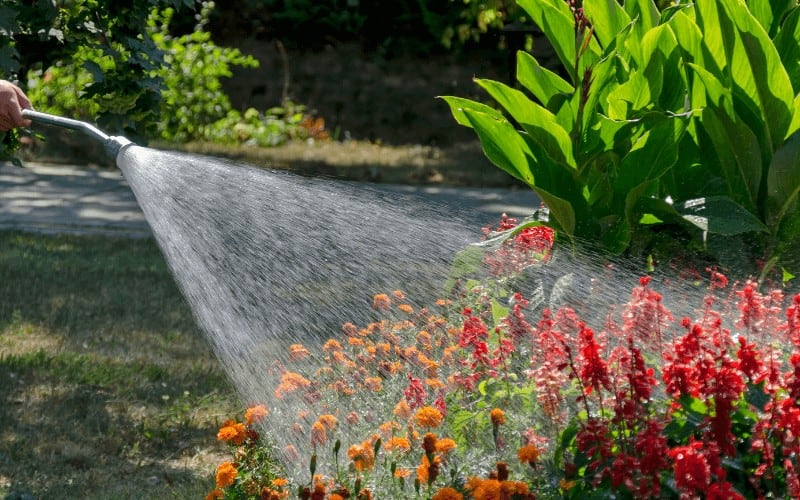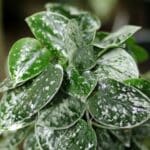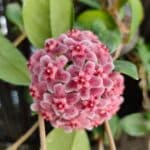Water is very essential to humans, animals, and plants. Hence the popular saying “water is life”. But even though water is beneficial, bad water can be detrimental to both humans and plants, which is why we're about to teach you how to make tap water safe for plants.
There are two types of water “hard” and “soft” water. Hard water often contains high chlorine and fluorine while soft water is high in sodium.
If you want to ensure your plants gets the safest water for its survival, read this post.
Table of Contents
Can I Water My Plants With Tap Water?
Yes, you can water your plants with tap water. Most tap water should be very safe for your plants except the water is softened because it contains salts that can build up in the soil and eventually lead to problems.
That said, you can also use chlorinated water for most houseplants, but your plants with be safer if you have a filtration system to filter the water before use.
How To Make Tap Water Safe For Plants

If you've ever wanted to know how to make tap water safe for plants, below is the best guide on the subject:
1. Leave the water to settle
Immediately after watering your plants, fill up the watering can and leave the water to settle for at least 24-hrs before next use.
This process will help allow the salt in the water to settle down at the bottom of the can. Much of the chlorine will also evaporate during this process.
After application of water to your plants, ensure to dispose properly of the remaining water containing salt that settled at the bottom.
It is most preferably to pour into the sink drain because pouring it to close to plants can still affect them. The water will still find its way to the plants through an underground movement known as percolation.
2. Add vinegar
Adding vinegar to your plants’ water at least once a month will help improve the acidity of the soil.
For every one quarter (¼) of water, use one (1) teaspoon of vinegar.
3. Boil the water to remove excess chlorine
Boiling water is another method to remove chlorine and make tap water safe for plants. Boling water allows chlorine to evaporate faster as it turns into a gas making it volatile.
Although this method is faster, it uses a lot of energy.
4. Use of Activated Carbon Filter (ACF)
This is a big cylinder filled up with charcoal. Water is allowed to run through the activated charcoal to help absorb the chlorine present in the water.
This method is very fast as it only takes a few seconds to filter chlorine however, the charcoal filters require regular replacement at least every six months.
In the case of new charcoal filters, allow water to run through it for a while to remove dust especially farm water you can drink.
5. Use fresh air
This method is cheaper and very much easy to use especially if you do not have a large garden. You can do use this method to remove chlorine from water for your potting plants.
This is simply done by transferring water from one container to the other, as this continues; atmospheric air removes the chlorine in the water.
6. Reverse Osmosis
This is a method that helps to remove chemicals from water and make it safe for the plant by using a system called membrane filtration.
This technology was developed by the U.S navy for submarines. Water is made to pass through the membrane to get it filtered.
Reverse osmosis is very effective; it has the capacity to filter out all chemicals from water including chloramines.
7. Eliminate toxic materials
Water contains toxic materials which are harmful to plants. These toxic materials can be removed by using an electric filter to pass water through the filter nets. This process helps to eliminate all possible contaminations.
8. Use hydrogen peroxide
The use of hydrogen peroxide helps to facilitate the removal of chlorine by stirring the water.
The right amount of hydrogen peroxide to use is approximately one to two drops per gallon (about 5litres). 3% of hydrogen peroxide solution gotten from a drugstore.
According to World Health Organization W.H.O, it suggests the level of chlorine not more than 5ppm in tap water. Also, according to The Centre for Disease Control (CDC), it suggests 4ppm as the level for chloramines water.
Sodium and chlorine are added to water to make it safe for consumption and constant application of tap water containing these chemicals is harmful to most garden or potted plants.
Chlorine used by municipalities to kill diseases that cause microorganisms is not good for plants. Excess chlorine is easily detected through smell. Once it is detected, ensure to remove it before applying it to your plants
Frequently Asked Questions
How long should tap water sit before watering plants?
It’s advisable to let your tap water sit out for a minimum of 24 hours before using it to water your plants. This will help to lessen the risk of harmful chemicals in the water.
Can you Dechlorinate tap water?
Yes, you can dechlorinate tap water, and there are a few ways to achieve that, such as boiling the water, leaving it under the sun, etc.
How do you Dechlorinate tap water for plants?
There are a few ways you can dechlorinate tap water for plants. One of such ways is to leavr the water out in the sun.
Again, using dechlorination tablets that is made of ascorbic acid will also neutralize chlorine somewhat faster. And finally, boiling the water will also do the magic.
Should I boil tap water before watering plants?
You, it is safe to boil tap water before watering your plant. This will typically kill most contaminants, making the water pretty safer for sensitive plants.
But don’t forget that the water must cool to room temperature before applying it on your plant, or the heat will kill your plants.
Is filtered tap water good for plants?
Yes, filtered tap water is good for plants. In fact, “distilled or reverse-osmosis filtered water is the safest for watering houseplants,” according to the Water Quality Association.
Conclusion
Making tap water safe for plants is very essential as they need it to survive. Getting a good source of water for plants can sometimes be difficult for most plant growers.
The best source of clean water for plants is rain and because it is not available all year round, then the use of other sources like tap water becomes necessary.
Unfortunately, the use of tap water can be a problem for plants. Hard or soft water on plants can cause the accumulation of salts in the soil which is potentially harmful to them. The salts can burn the roots of your plants.
Related Posts:
- Does Spraying Plants With Water Prevent Frost Damage?
- How Do You Bring A Plant Back to Life After Overwatering?
- What Plants Can You Grow From Cuttings In Water?
- How Often Should You Water Hydrangeas?
- How Often Should You Water Pepper Plants?




